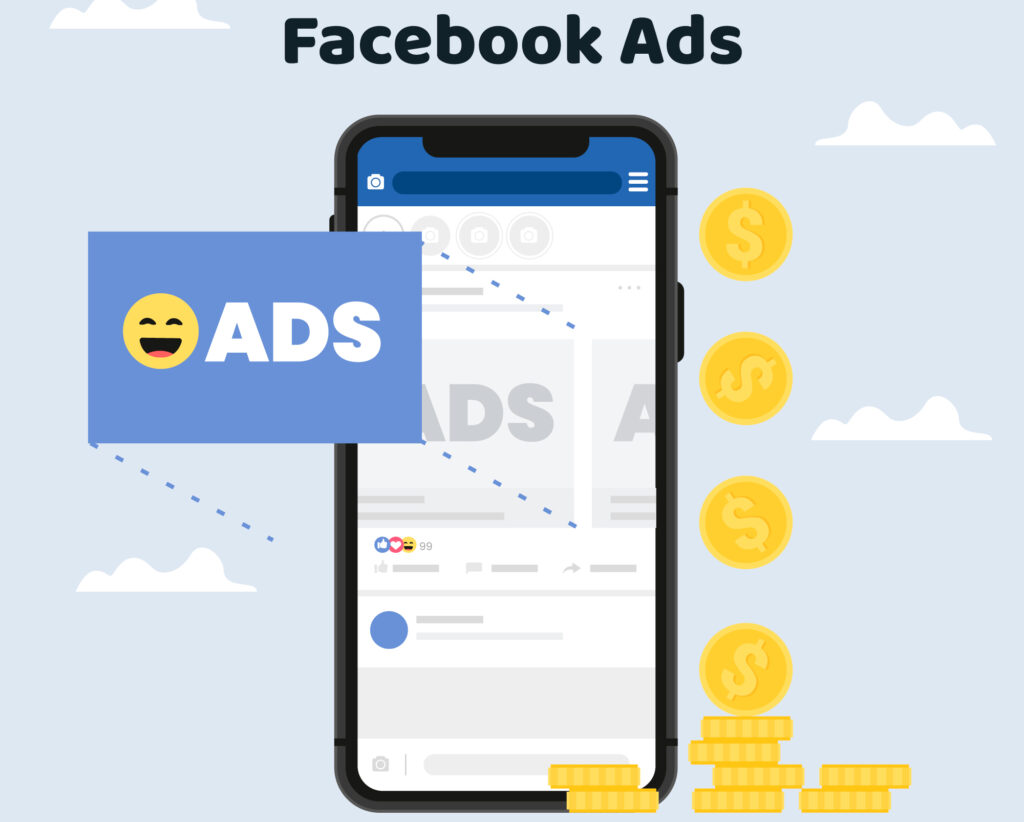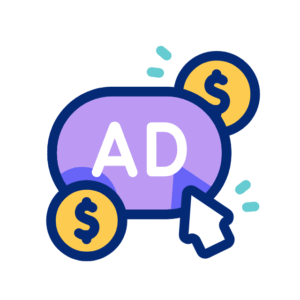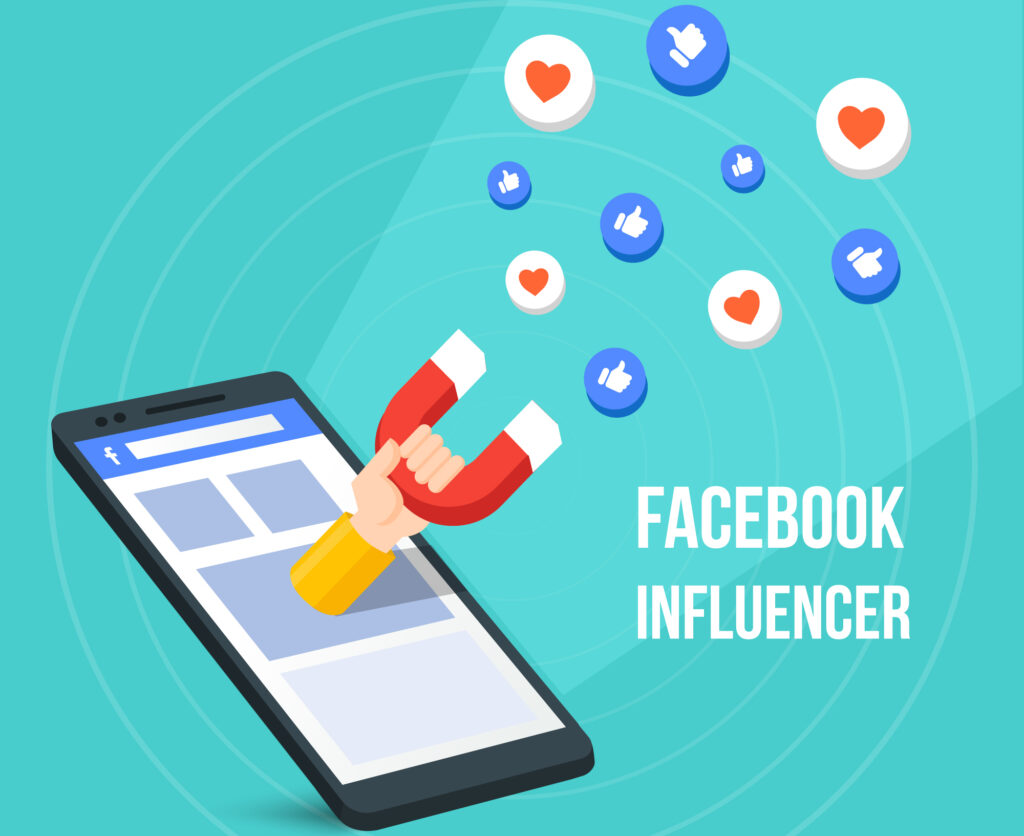
Facebook Ads expertise is one of the most in-demand skills in marketing. With Facebook’s reach and targeting capabilities, businesses rely heavily on well-executed ad campaigns to engage their audience and drive conversions. This has largely increased the need for smart Facebook advertisers. Recruiters assess smartness based on how well you answer questions in your interview.
But with new updates every few months in Meta ads, it’s important to know what new questions recruiters will ask. Here’s a roundup of the most important Facebook Ads interview questions and insights to help you understand each concept and ace your upcoming interviews.
But first, What Are the Most Important Qualities of a Facebook Ads Specialist?
A Facebook Ads Specialist is important in creating, managing, and optimizing ad campaigns to drive results on Meta platforms. To succeed, they must possess several essential qualities that help them excel in this competitive and dynamic field. Here’s an in-depth look:
1. Adaptability
The digital marketing landscape is ever-changing, with frequent updates to Meta Ads tools, algorithms, and best practices. A specialist must be adaptable, stay informed about changes and quickly adjust strategies to align with new trends. For instance, knowing when to leverage new ad formats or features can make campaigns more impactful.
2. Strong Communication Skills
A Facebook Ads Specialist collaborates with clients, stakeholders, and team members to align campaign goals and expectations. Whether discussing ad performance or presenting strategies, clear and effective communication skills ensures everyone is on the same page. Miscommunication can lead to misaligned objectives, which impacts campaign success.
3. Creativity for Engaging Campaigns
In the world of Meta Ads, capturing audience attention is critical. Specialists must craft compelling ad creatives, including eye-catching visuals and persuasive ad copy, to differentiate their campaigns from competitors. Creativity also helps in developing campaigns that resonate with the target audience and drive better engagement.
4. Strong Analytical Skills
Analyzing performance metrics is a core part of managing Facebook ad campaigns. Specialists need to monitor data like Click-Through Rates (CTR), Conversion Rates, and Return on Ad Spend (ROAS) to gauge effectiveness and identify areas for improvement. Being data-driven allows specialists to optimize campaigns for maximum ROI.
5. Clear Reporting Skills
Clients and managers often depend on specialists to make sense of complex performance data. The ability to prepare and deliver actionable reports using simple language and visuals is invaluable. These reports help stakeholders understand how well the ad campaign is meeting its objectives and where adjustments are needed.
6. In-Depth Customer Understanding
A deep understanding of the target audience is the foundation of any successful Facebook Ads campaign. Specialists must research the audience’s preferences, behavior, and pain points to create ads that resonate. This knowledge ensures the messaging and targeting align with audience expectations.
7. Experimental Mindset

The most effective Facebook Ads specialists continuously test and optimize their strategies. By experimenting with different ad formats, targeting options, and creatives, they can discover what resonates best with the audience. For example, A/B testing can reveal whether carousel ads perform better than video ads for a specific campaign.
Frequently Asked Facebook Ads Interview Questions: Beginner to Advanced
Facebook Ads are an essential part of digital marketing and performance marketing strategies. Preparing for interviews about Facebook Ads requires understanding how they work, what tools are used, and the techniques for creating effective campaigns. Below, we’ve simplified commonly asked questions so that even 8th and 9th graders can easily understand:
Beginner Level Questions
1. How do you measure the success of a Facebook Ads campaign?
Answer: To know if your ad campaign is doing well, you look at numbers like how many people clicked on your ad (Click-Through Rate or CTR) or bought something because of it (Conversion Rate). You can also check how much money you made compared to how much you spent (Return on Ad Spend or ROAS).
2. What tools do you use to manage and optimize Facebook Ads?
Answer: Most people use Facebook Ads Manager, which is like a control center for running ads. Some also use tools like Google Analytics to check website traffic or other software to track performance and manage ad budgets.
3. What types of targeting options have you worked with in Facebook Ads?
Answer: Facebook Ads lets you show ads to specific groups of people. You can target them based on:
- Location (where they live)
- Interests (what they like)
- Behavior (what they do online)
- Demographics (age, gender, etc.)
4. How do you stay up-to-date with changes and updates in Facebook Ads?
Answer: You can follow blogs, watch YouTube videos, or read posts from Meta (Facebook’s parent company). Joining online groups about digital marketing or social media engagement also helps.
5. How do Facebook Ads differ from Google Search Ads in terms of targeting and ad formats?
Answer:
- Facebook Ads show up in people’s feeds (on social media), while Google Ads appear when people search for something on Google.
- Facebook Ads use detailed audience targeting, while Google focuses on keywords people search for.
- Facebook uses pictures, videos, and carousels, but Google Ads mostly show text-based ads.
6. What are the best practices for creating effective ads on Facebook?
Answer: To make great ads:
- Use eye-catching pictures or videos.
- Write a clear message that tells people what to do (like “Click here to buy!”).
- Test different versions of your ad to see which works best.
7. How do you create a new campaign in Facebook Ads Manager?
Answer: In Facebook Ads Manager, you:
- Click “Create” to start a new campaign.
- Pick a goal, like getting more clicks or sales.
- Choose your audience and budget.
- Add your ad, like a photo or video with text.
- Launch it
8. What are the various ad targeting options available in Facebook Ads Manager?
Answer: In Ads Manager, you can target based on:
- Custom Audiences (people who visited your site).
- Lookalike Audiences (people like your current customers).
- Interest-Based Targeting (hobbies and interests).

9. How do you monitor and analyze the performance of a Facebook ad campaign?
Answer: You check performance in Ads Manager by looking at:
- CTR: How many clicked the ad.
- ROAS: How much you earned compared to what you spent.
- Conversions: Actions like sign-ups or purchases.
10. What is the Meta Pixel, and how is it used?
Answer: The Meta Pixel is a small code you add to your website. It tracks what visitors do (like clicking or buying). This helps you improve ads and target people better.
Intermediate-Level Facebook Ads Interview Questions
1. What experience do you have specifically in Facebook Advertising?
Answer: This question evaluates your hands-on experience with Facebook Ads Manager. Share specific examples of campaigns you’ve managed, highlighting metrics like increased social media engagement, lead generation, or conversions. Mention tools like Google Analytics to track and measure campaign performance.
2. What strategies have you found to be most effective in Facebook Ads?
Answer: Discuss strategies such as A/B testing for ad creatives, leveraging custom audiences, or implementing a strong SEO strategy to drive traffic to the landing pages. Highlight how you’ve aligned marketing strategies with the customer journey and optimized campaigns for better PPC potential.
3. What types of targeting options have you worked with in Facebook Ads?
Answer: Explain your experience with different targeting options, such as demographic, geographic, interest-based, and behavioral targeting. Highlight using advanced techniques like retargeting (remarketing to past website visitors) or lookalike audiences for more precision.
4. What types of ad formats have you had the most success with on Facebook?
Answer: Share examples of formats like carousel ads for showcasing multiple products, video ads for storytelling, or lead ads for collecting contact details directly on Facebook. Discuss how you tailored formats based on the objectives, such as engagement or conversions.
5. What kind of obstacles have you faced while running Facebook Ads, and how did you overcome them?
Answer: Talk about challenges like low engagement rates, high CPC, or policy violations. Explain how you identified issues using Facebook Ads Manager or Google Analytics and implemented solutions such as improving ad creatives, refining targeting, or optimizing bidding strategies.
6. Can you explain the concept of objective-based advertising (ODAX objectives) on Meta Ads?
Answer: ODAX objectives streamline campaign goals into categories like awareness, traffic, engagement, and conversions. For example, you might use the engagement objective to increase social media engagement or the conversion objective to boost sales.
7. What is retargeting, and how can it be used effectively in Facebook Ads?
Answer: Retargeting involves serving ads to users who have interacted with your website, app, or previous ads. It’s a critical part of performance marketing. For instance, you could retarget users who added items to their cart but didn’t complete the purchase, offering them discounts to encourage conversion.
8. How do you ensure that your Facebook Ads are compliant with Facebook’s advertising policies?
Answer: Staying compliant involves thoroughly reviewing Facebook’s ad policies and avoiding prohibited content like misinformation or misleading claims. Tools like Content Marketing guidelines and Facebook’s automated review system can help ensure your ads meet the required standards.
9. Can you provide an example of a Facebook ad campaign you’ve managed that achieved exceptional results?
Answer: Describe a successful campaign, including objectives, strategies, and outcomes. For instance, mention increasing social media engagement by 40% through engaging carousel ads or achieving a 200% ROI by combining PPC potential with precise targeting.
10. How do you determine the target audience for a Meta Ads campaign?
Answer: Defining a target audience starts with understanding customer personas based on demographics, interests, and online behaviors. Use tools like Google Analytics and audience insights in Facebook Ads Manager to create detailed audience segments.
11. How do you set a budget for a Meta Ads campaign?
Answer: Budgeting depends on campaign goals, target audience size, and competition. Explain how you use tools like campaign budget optimization (CBO) in Facebook Ads Manager to allocate resources efficiently and monitor ROI.
12. How do you use Facebook Pixel to improve ad campaigns?
Answer: Facebook Pixel helps track user actions on a website, providing insights into conversions and behaviors. Discuss how you’ve used it for retargeting, tracking conversion events, and improving audience segmentation for better performance marketing.
13. What is the Conversion API in Meta Ads?
Answer: Conversion API works alongside Facebook Pixel to send data directly from servers to Facebook. Explain how this enhances tracking accuracy, even with privacy restrictions, ensuring effective campaign optimization.
14. Are you managing the ads yourself or is there some other team member or an agency?
Answer: This question gauges your involvement. Be transparent about whether you handle ads end-to-end or collaborate with a team or agency for specific tasks like Content Marketing, creative development, or analytics.
15. Can you explain the difference between CPM and CPC bidding strategies on Facebook?
Answer:

- CPM (Cost Per Mille): You pay for every 1,000 times your ad is shown.
- CPC (Cost Per Click): You only pay when someone clicks on your ad.
CPM is better for building awareness, while CPC is good for getting clicks.
Advanced Level Facebook Ads Interview Questions
1. What experience do you have in split testing and optimizing Facebook Ads?
Answer: Split testing (also known as A/B testing) involves testing different versions of an ad to see which performs better. For example:
- Test variations in ad copy, visuals, CTAs, or targeting options.
- Use tools in Facebook Ads Manager to set up A/B tests for specific campaign elements.
Once results are in, focus on the winning version and continue iterating for further optimization. Split testing ensures your PPC potential is maximized, leading to higher CTR and better ROI.
How to Answer:
Explain how you’ve used split testing to improve a campaign. For instance, you could say:
“In one campaign, I tested two different ad copies targeting the same audience. The version with a clearer CTA outperformed the other, boosting CTR by 20%. This insight helped optimize future campaigns for higher engagement.”
2. What is your approach to creating and testing Facebook ad copy?
Answer: Creating ad copy involves blending creativity with data. The process includes:
- Researching the target audience using tools like Google Analytics to understand their preferences and pain points.
- Crafting multiple versions of the ad copy with different tones, CTAs, or value propositions.
- Testing the copies in performance marketing campaigns to identify which resonates most with the audience.
How to Answer:
“I focus on the audience’s core needs, using data to craft ad copy that aligns with their expectations. In a recent campaign, I created three versions of ad copy and tested them against a segmented audience. The version with an emotional appeal generated the highest engagement.”
3. How do you create and utilize lookalike audiences in Facebook Ads?
Answer: Lookalike audiences allow you to target users similar to your existing customers or website visitors. Here’s the process:
- Upload a source audience, such as an email list or website visitors captured through the Facebook Pixel.
- Use Facebook’s algorithm to find similar users based on behaviors and interests.
- Segment lookalike audiences by location, size (1%-10%), or other criteria for precise targeting.
How to Answer:
“In one campaign, I used a lookalike audience built from our highest-value customers. This strategy increased conversions by 25%, as the audience shared similar behaviors and interests, making them highly receptive to our ads.”
4. What are some creative strategies and ad formats that work well on Facebook?
Answer: Engaging ad formats like carousel ads, video ads, and instant experiences drive social media engagement. Creativity is crucial for designing campaigns that stand out. Examples include:
- Incorporating user-generated content to build authenticity.
- Using dynamic product ads to personalize experiences.
- Crafting stories that align with your brand’s content marketing strategy.
How to Answer:
“For a recent e-commerce client, I used carousel ads to showcase multiple product features, paired with vibrant visuals and short, engaging headlines. This approach boosted CTR by 30%.”
5. How do you troubleshoot underperforming Facebook ad campaigns?
Answer: Troubleshooting involves diagnosing and resolving campaign issues:
- Review targeting: Check if the audience is too broad or misaligned with the offer.
- Analyze creatives: Update visuals or ad copy if engagement is low.
- Evaluate placement and bidding: Adjust to ensure cost-efficiency.
- Monitor performance in Ads Manager: Look for metrics like low CTR or high CPC as indicators.
How to Answer:
“In a campaign with low engagement, I noticed ad fatigue was a problem. By refreshing the creatives and narrowing the audience, CTR improved by 15% in two weeks.”
6. Can you discuss your experience with managing budgets and cost controls in Facebook Ads Manager?

Answer: Budget management ensures campaigns remain cost-effective while delivering results:
- Use daily or lifetime budgets to control spending.
- Employ bid strategies like cost caps to maintain profitability.
- Monitor key metrics like CPA and ROAS to ensure alignment with financial goals.
How to Answer:
“For a client with a $10,000 budget, I segmented funds across awareness, consideration, and conversion campaigns. Regularly monitoring the ROAS in Facebook Ads Manager allowed me to reallocate budgets for optimal results.”
7. What are some common issues faced during Meta Ads campaigns, and how do you resolve them?
Answer: Common issues include:
- Ad fatigue: Refresh creatives or extend the audience pool.
- High CPC: Adjust bidding strategies or test different ad placements.
- Low engagement: Optimize visuals and ad copy to align with audience interests.
How to Answer:
“In one campaign, low engagement was traced to irrelevant targeting. Refining the audience based on behaviors and adding a stronger CTA improved engagement rates by 40%.”
8. How do you create compelling ad creatives for Meta Ads?
Answer: Effective ad creatives combine visuals, messaging, and a strong value proposition. Use high-quality images or videos and pair them with emotional or practical messaging. Tools like Canva and Adobe can help create visually appealing ads.
How to Answer:
“In a campaign for a fitness brand, I used high-quality videos showing transformations, paired with motivating copy. This approach resonated with the audience, leading to a 50% increase in leads.”
9. How do you use storytelling in Meta Ads?
Answer: Storytelling helps build emotional connections. Structure your story with:
- A problem the audience faces.
- Your product as the solution.
- A CTA encouraging the next step.
How to Answer:
“I created a video ad showing a small business struggling with growth and then thriving using our services. This narrative approach resulted in higher engagement and conversions.”
10. Describe a challenging Meta Ads campaign you’ve managed and how you overcame it.
Answer: Discuss a campaign with a clear problem and your solution. For instance:
- Issue: Low ROAS.
- Solution: Adjust targeting, refresh creatives, and optimize the budget.
- Outcome: Improved ROAS and better results.
How to Answer:
“For a client in the retail sector, I noticed low sales despite high traffic. By introducing retargeting ads and dynamic creatives, we improved ROAS by 35%.”
11. Explain an effective sales funnel you built.
Answer: Describe the stages:
- Awareness: Run video ads to introduce the brand.
- Consideration: Use carousel or lead ads to highlight offers.
- Conversion: Employ retargeting ads with discounts to drive purchases.
How to Answer:
“In one campaign, I designed a funnel with awareness ads for a new audience, followed by retargeting ads for website visitors. The funnel generated a 20% increase in conversions.”
12. Which KPIs do you use to measure the performance of your Facebook campaigns?
Answer: Key KPIs include:
- CTR for engagement.
- ROAS for profitability.
- CPA to track costs.
- Conversion Rate for effectiveness.
How to Answer:
“I monitor CTR to ensure ad engagement, while ROAS and CPA guide budget allocation. Together, these KPIs provide a clear picture of campaign success.”
13. What do you understand about Blended ROAS?
Answer: Blended ROAS measures the total revenue generated across all marketing channels compared to the total spend, offering a holistic view of profitability.
How to Answer:
“Blended ROAS helps determine the overall efficiency of marketing strategies. It’s especially useful when running campaigns across multiple platforms like Facebook and Google.”
14. What is the difference between ROAS and POAS?
Answer:
- ROAS: Measures revenue generated per dollar spent on ads.
- POAS: Considers profit margins, offering deeper insights into profitability.
How to Answer:
“While ROAS focuses on revenue, POAS accounts for profits, making it crucial for understanding net gain from ad spend.”
15. How would you explain attribution?
Answer: Attribution identifies which touchpoints contributed to a conversion. It helps allocate credit for the success of campaigns across channels.
How to Answer:
“I use tools like Google Analytics and Facebook Ads Manager to analyze attribution, helping me identify which parts of the funnel are most effective.”
Best Practices to Ace the Facebook Ads Interview
To get the job of a Facebook Ads Specialist, you need more than just technical know-how. Employers look for candidates who not only understand how to run campaigns using Facebook Ads Manager but also possess strategic thinking and problem-solving skills. Here are some best practices to help you prepare and stand out during your interview.

1. Master the Basics of Facebook Ads
Before anything else, make sure you’re well-versed in how Facebook Ads work. Understand the ins and outs of Performance Marketing, including how to set up, monitor, and optimize ad campaigns. Study tools like Google Analytics to track ad performance and connect those insights to a broader Digital Marketing strategy.
2. Prepare for Common Facebook Ads Interview Questions
Expect questions like:
- How would you set up an ad campaign targeting a specific audience?
- Can you explain how to measure social media engagement through Facebook Ads Manager?
- What’s the difference between CPC and CPM in a PPC campaign?
Practice answering these questions with clear, specific examples to demonstrate your experience and knowledge. You can also explore resources or mock interviews to hone your interview question preparation skills.
3. Highlight Your Analytical Skills
Being able to interpret data and optimize campaigns is crucial for any Facebook Ads Specialist. Familiarize yourself with terms like CTR (Click-Through Rate), Conversion Rate, and ROAS (Return on Ad Spend). Show how you use data to make informed decisions and mention how tools like Google Analytics help refine marketing strategies.
4. Showcase Your Creativity and Content Marketing Knowledge
Creating ads that grab attention is a must in Content Marketing. Highlight your ability to design engaging ad creatives, write persuasive copy, and develop strategies to improve social media engagement. Share examples of campaigns where your creative ideas led to tangible results.
5. Understand Cross-Channel Marketing Strategies
Employers value candidates who can connect the dots between Facebook Ads and other marketing efforts like SEO Strategy and PPC Potential. Be ready to explain how you would integrate Facebook Ads with broader Digital Marketing campaigns to maximize results.
6. Stay Updated with the Latest Trends
Meta Ads are always evolving. Show that you’re proactive about learning the latest features of Facebook Ads Manager, experimenting with new ad formats, and staying ahead of trends. Employers want someone adaptable and eager to improve their marketing strategies continuously.
Final Tips for Freshers Preparing for a Facebook Ads Interview
- Practice Mock Interviews: Practicing with common questions can help build confidence and improve your answers.
- Stay Updated on Trends: Facebook’s advertising platform evolves frequently, so it’s essential to keep up with the latest features and best practices.
- Understand Facebook’s Role in a Marketing Funnel: Facebook Ads are vital in a marketing AI funnel, driving awareness, engagement, and conversions by targeting users at different stages, making them an essential part of a broader digital marketing strategy.
- Showcase Analytical Skills: Highlighting your comfort with data and your ability to make data-driven decisions will make you stand out.
Preparing for a Facebook Ads interview means combining technical expertise with strategic thinking. Focus on showcasing your creativity, analytical mindset, and ability to integrate Facebook Ads with broader Digital Marketing strategies. Practice answering common Facebook Ads interview questions confidently, and highlight your knowledge of tools like Google Analytics and techniques for improving social media engagement. With thorough preparation, you’ll stand out as a well-rounded candidate ready to excel in Performance Marketing.
If you want to stand out in your Facebook Ads interview, consider enrolling in the Facebook and Instagram Ads course. This comprehensive program is designed to equip you with expertise in ad strategies, targeting techniques, budget optimization, and analytics, all crucial for real-world campaign success. With industry insights and practical exercises, this course will deepen your understanding and make you more confident in handling interview questions and real campaign scenarios alike.
Good luck with your interview preparation!